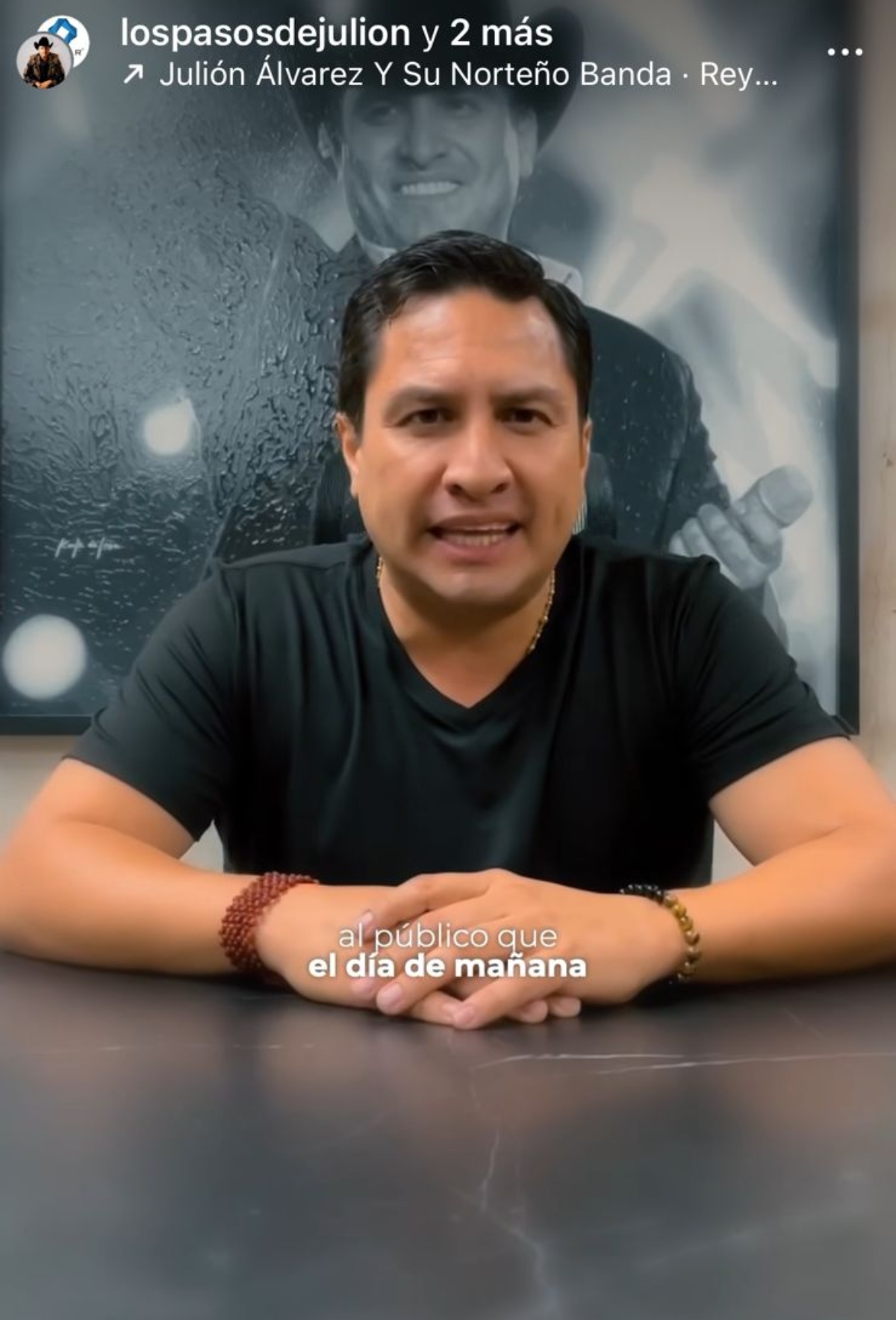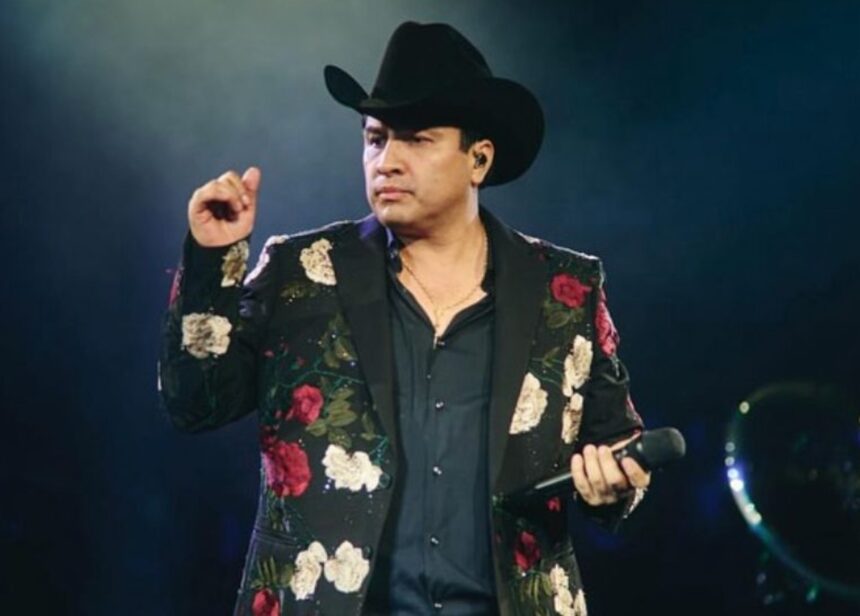On May 23, 2025, Mexican singer Julión Álvarez announced the cancellation of his concert scheduled for May 24 at AT&T Stadium in Arlington, Texas, due to the revocation of his work visa by the U.S. government.
The artist, known for his regional Mexican music, expressed his regret through a video on Instagram, where he reported that both he and his team received official notification of the cancellation of their visas, preventing them from fulfilling their commitment before more than 50,000 fans who had already purchased tickets for the event.
Julión Álvarez’s history of visa problems

This is not the first time Alvarez has faced difficulties with U.S. authorities.
In 2017, he was blacklisted by the U.S. Treasury Department for alleged ties to drug trafficker Raúl Flores Hernández, resulting in the revocation of his visa and the freezing of his accounts in that country.
Although the singer denied the accusations and affirmed that his relationship with Flores Hernández was limited to a real estate transaction, it was not until 2022 that he was removed from the list, allowing him to resume activities in the United States.
Other visa cancellations for Mexican artists

Alvarez’s situation is part of a series of similar actions by the U.S. government towards other Mexican artists, especially those associated with the narcocorrido genre.
For example, in April 2025, members of the band Los Alegres del Barranco had their visas revoked after projecting the image of Nemesio Oseguera Cervantes, alias “El Mencho,” leader of the Jalisco Cartel – New Generation, during a concert in Mexico.
In addition, artists such as Eduin Caz, vocalist of Grupo Firme, and Israel Gutiérrez have faced complications in renewing their work visas, which has called into question their ability to perform in the United States.
Other musicians, including Peso Pluma, Natanael Cano, Grupo Arriesgado, Jr. Salazar, Edgardo Núñez and Luis R. Conríquez, have also been singled out by U.S. authorities because of their song lyrics, which allegedly advocate drug trafficking and organized crime.
Concern in the Latino community

These measures have generated concern among the Hispanic community in the United States, which sees in these artists a representation of their culture and traditions.
The cancellation of concerts and the inability of these musicians to perform in the United States affects not only the artists, but also their fans and the entertainment industry in general.
For those interested in attending Mexican artists’ events in the U.S., it is recommended to be attentive to official updates and consider the possibility of refunds or changes in concert dates.
Si antes de las políticas migratorias de Trump varios artistas batallaban para dar shows en EEUU, ahora con las duras medidas implementadas, será el doble de difícil
Migration policies and the role they play in the shows
In addition, it is important to recognize the influence of migration policies on the programming of cultural and musical events.
In sum, the revocation of the visa of Julión Álvarez and other Mexican artists reflects a growing trend by U.S. authorities to scrutinize more closely the activities and associations of foreign public figures, especially in the context of the fight against organized crime and the promotion of certain content in music.
Here is the video of Julión Álvarez announcing his visa cancellation.
Find out more at ‘QueOnnda.com’.























